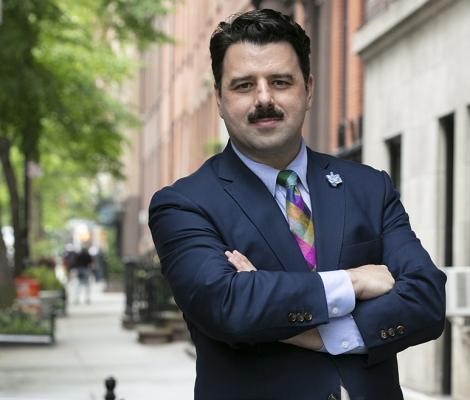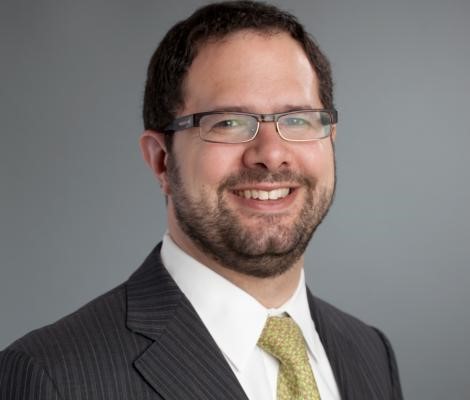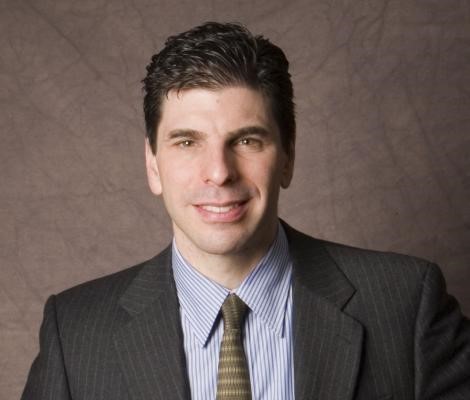课程介绍
U.S. INTELLECTUAL PROPERTY LAW
INTRODUCTION TO U.S. LEGAL SYSTEM WITH PROFESSOR STEIN
U.S. PATENT LAW WITH PROFESSOR BURSTEIN
DESIGN LAW WITH PROFESSOR BUCCAFUSCO
U.S. TRADEMARK LAW WITH PROFESSOR WU
讲师介绍
CHRISTOPHER J. BUCCAFUSCOProgram Description:
Over the past 200 years, a variety of laws have developed within the United States to give intellectual works the same protections that real estate or other forms of "property" enjoy under the law. Indeed, intellectual property can be bought or sold just like a house or a car. Intellectual property can even be leased out.
Significantly, where property such as machines may have once been the primary source of a company's worth, in today's economy much of a company's worth comes from the ownership of intellectual property. What do you think the value of the trademark for Coke™, Microsoft's Windows operating system, or the rights to the movie ‘Gone with the Wind’ are worth, for example? Attorneys are generally involved in protecting this type of intellectual property, and their involvement could be in any one of numerous areas of the intellectual property field.
U.S. federal IP law is directly permitted by the Constitution for copyrights and patents. For trademarks and other forms of IP, the federal government only has the authority to make law via its ability to regulate commerce. Furthermore, when granting Congress, the ability to create copyright and patent law, the Constitution does so with an explicit purpose, “to Promote the Progress” of the relevant fields. This statement is understood as grounding American IP law in the idea of promoting economic benefit and increasing the amount of innovation and creative works available to people.
This program is designed to give IP professionals in China the fundamentals of U.S. IP law, in a flexible and convenient way. Participants can choose to participate in classroom learning or subscribe online via CIPTC portal.
For 12 consecutive years, Cardozo School of Law – Yeshiva University in New York City and China IP Training Center have successfully executed excellent IP training programs for Chinese executives in Beijing and New York. For the first time this July, this exclusive program will be available to all IP professionals in China.
About Cardozo:
Cardozo School of Law – Yeshiva University is consistently recognized as a leader in intellectual property and information law. With a foundation in theory and policy, our faculty and students thrive on asking questions about evolving issues and developing answers that meet current needs. Cardozo offers one of the most diverse intellectual property and information law program in the country, with expertise in science, emerging technology, information, internet and cybersecurity, entertainment law and much more. Our faculty are committed to leadership at the forefront of legal issues that arise as innovation continues to shape the future.
This section will introduce you to the basics of the American legal system, including the structure of the federal system, the operation of the courts, the use of legal precedent, and methods of reading, analyzing, and synthesizing case law. Highlights:
• The U.S. Constitution; Separation of Powers
• Components of US Law; Case; Judges; US Court Systems
• Elements of a Case; Res Judicata; Claim Preclusion
• Reading and Briefing a Case
• Reading and Briefing Cases; Statutory Interpretation
This section will introduce you to the basics of United States patent law. We will discuss the process of obtaining a patent from the U.S. Patent and Trademark Office; the legal prerequisites to patenting an invention; the legal, commercial and practical considerations involved in developing and protecting new technology; and the issues involved in determining and proving patent infringement. No technical background is required. Highlighted topics:
• Patentable Subject Matter
• Utility and Disclosure
• Novelty
• Nonobviousness
• Infringement and Remedies
This section will offer a doctrinal and practical overview of the legal protections available to product design, industrial design, and fashion design based on United States design patent, copyright, utility patent, and trade dress laws. Students will be introduced to the substantive features of these legal regimes, what they cover and what they do not, and the ways in which they interoperate. Non-U.S. jurisdictions will be addressed occasionally for purposes of comparison. Topics include:
• Theoretical justifications for design protection
• The requirements for design patent, copyright, and trade dress protection for designs
• How each of these fields handles issues of functionality and utility
• The nature of the infringement rules for each doctrine
• Discussion of other legal regimes that influence design, including environmental law, disability law, and tort law
This section includes an introduction to U.S. trademark law, as well as coverage of broader aspects and issues in the U.S. intellectual property system, using examples from both trademark law and beyond. Topics covered include:
• Overview of U.S. Trademark Law
• Trademark Registration and Procedures
• Trademark Infringement and Concepts of Confusion
• Domain Name Disputes
• Secondary Liability
 Professor of Law
Professor of Law
Director, Intellectual Property & Information Law Program
Associate Dean for Faculty Development
EDUCATION
This section includes an introduction to U.S. trademark law, as well as coverage of broader aspects and issues in the U.S. intellectual property system, using examples from both trademark law and beyond. Topics covered include:
B.S. Georgia Tech: Science, Technology & Culture
J.D. University of Georgia School of Law
M.A. University of Chicago: History of Culture
AREAS OF EXPERTISE
This section includes an introduction to U.S. trademark law, as well as coverage of broader aspects and issues in the U.S. intellectual property system, using examples from both trademark law and beyond. Topics covered include:
Art Law
Copyright
Economic Analysis of Law
Intellectual Property
Trademark Law
Professor Buccafusco's research employs empirical social science methods to test fundamental assumptions about how the intellectual property system functions. IP law attempts to affect people's creative behavior by offering them incentives to innovate, share, and use new works and inventions, but very little is known about whether these incentives actually work. Using novel creativity experiments, Professor Buccafusco's research has shown that creators often do not behave the way that IP law assumes they will. His studies have explored how different kinds of incentives affect creativity, how creators think about borrowing from others' efforts, and how creators assign value to their innovations. The results of these studies challenge important aspects of IP law, and they suggest opportunities for improving the legal system and creative economies.
Professor Buccafusco has teamed up with the U.S. Patent and Trademark Office and colleagues at Northwestern University to co-host the fifth annual Workshop on Empirical Studies of Intellectual Property. Professor Buccafusco, David Schwartz, and the PTO's Chief Economists founded the workshop four years ago. The workshop allows researchers from around the world to present early stage empirical projects so they can receive feedback before they begin collecting data. This enables them to refine their ideas and methods and to improve the value of the resulting data.
Prior to coming to Cardozo, Professor Buccafusco taught at Chicago-Kent College of Law. He won the SBA teaching award in his first year on the faculty, and he later won the university-wide teaching award. At Chicago-Kent, Professor Buccafusco co-founded the Center for Empirical Study of Intellectual Property.
 Vice Dean
Vice Dean
Professor of Law
EDUCATION
B.A. 1999, Yale University
J.D. 2004, New York University
AREAS OF EXPERTISE
Intellectual Property
Patent Law
Michael J. Burstein is a Vice Dean and Professor of Law at Cardozo Law, where he teaches and writes about intellectual property, innovation policy, and law and entrepreneurship. Professor Burstein’s research focuses on the ways in which intellectual property law, corporate law, and public law facilitate relationships among entrepreneurs, markets, and government actors and influence the production and dissemination of innovative works and ideas. His recent publications include articles about patent markets, innovation prizes, judicial challenges to patent validity, and non-IP strategies for information exchange. He is currently writing about the legal treatment of information as an asset and editing a volume of case studies that explore sharing and commons-based production in entrepreneurial communities.
Before joining the Cardozo faculty, Professor Burstein was a Climenko Fellow at Harvard Law School. He was previously an appellate litigator in private practice in Washington, DC, a Bristow Fellow in the Office of the Solicitor General, U.S. Department of Justice, and a law clerk for Judge A. Raymond Randolph of the U.S. Court of Appeals for the D.C. Circuit. He was also a management consultant at McKinsey & Co. Professor Burstein holds a J.D., magna cum laude, from the New York University School of Law and a B.A. in Molecular Biophysics & Biochemistry and Ethics, Politics & Economics from Yale University.
 Professor of Law
Professor of Law
Director, Gertrud Mainzer Program in Family
Law, Policy, and Bioethics
EDUCATION
B.A., 1987 Williams College
Ph.D. (in Philosophy), 1992, Massachusetts Institute of Technology
J.D., 2000, Yale University
AREAS OF EXPERTISE
Bioethics
Family Law
Gender, Sexuality and the Law
Jurisprudence and Legal Theory
Science and the Law
Professor Stein is the founding director of the Family Law, Policy and Bioethics Program at Cardozo School of Law. His scholarship focuses on legal and philosophical topics related to families, sexual orientation, gender, reproduction, bioethics, cognition and science. He has written many scholarly articles and book chapters as well as three books, including The Mismeasure of Desire: The Science, Theory and Ethics of Sexual Orientation and Without Good Reason: The Rationality Debate in Philosophy and Cognitive Science, both published by Oxford University Press. At Cardozo, he teaches Family Law; Sexuality, Gender, and the Law; Evidence; Bioethics; and Elements of Law, a required first-year law course that focuses on “thinking like a lawyer”, especially how lawyer uses cases to make arguments and how lawyers interpret statutes.
Before joining the faculty at Cardozo, Professor Stein taught in the philosophy departments at Yale University, Mount Holyoke College, Williams College and NYU. He has also been a visiting professor at UCLA Law School, UC-Hastings College of Law, and the Yale Law School at Yale University.
 Professor of Law
Professor of Law
Director, Cardozo Data Law Initiative (CDLI)
EDUCATION
B.A., 1996, Harvard University
Ph.D., 2005, University of California, Berkeley
J.D., 2005, University of California, Berkeley
AREAS OF EXPERTISE
Cybersecurity
First Amendment
Information Governance
Intellectual Property
International Privacy and Data Protection
Privacy
Professor Wu's doctorate studies in computer science are foundational to his information law scholarship, which spans freedom of speech, privacy law, and intellectual property law. He has previously written on the limits of online intermediary immunity and on understanding the role of data de-identification in law. His current work explores the relationship between data privacy and theories of free expression.
Professor Wu was previously an associate at Covington & Burling in San Francisco. In 2006-7, he clerked for Judge Sandra L. Lynch of the United States Court of Appeals for the First Circuit. Immediately prior to coming to Cardozo, he was an intellectual property associate at Fish & Richardson in Boston.
Professor Wu received his undergraduate degree in 1996 in computer science summa cum laude from Harvard. He is a member of the Order of the Coif and Phi Beta Kappa.

京ICP备05053801号-1 京公网安备11010802030457号 中国知识产权培训中心保留所有版权